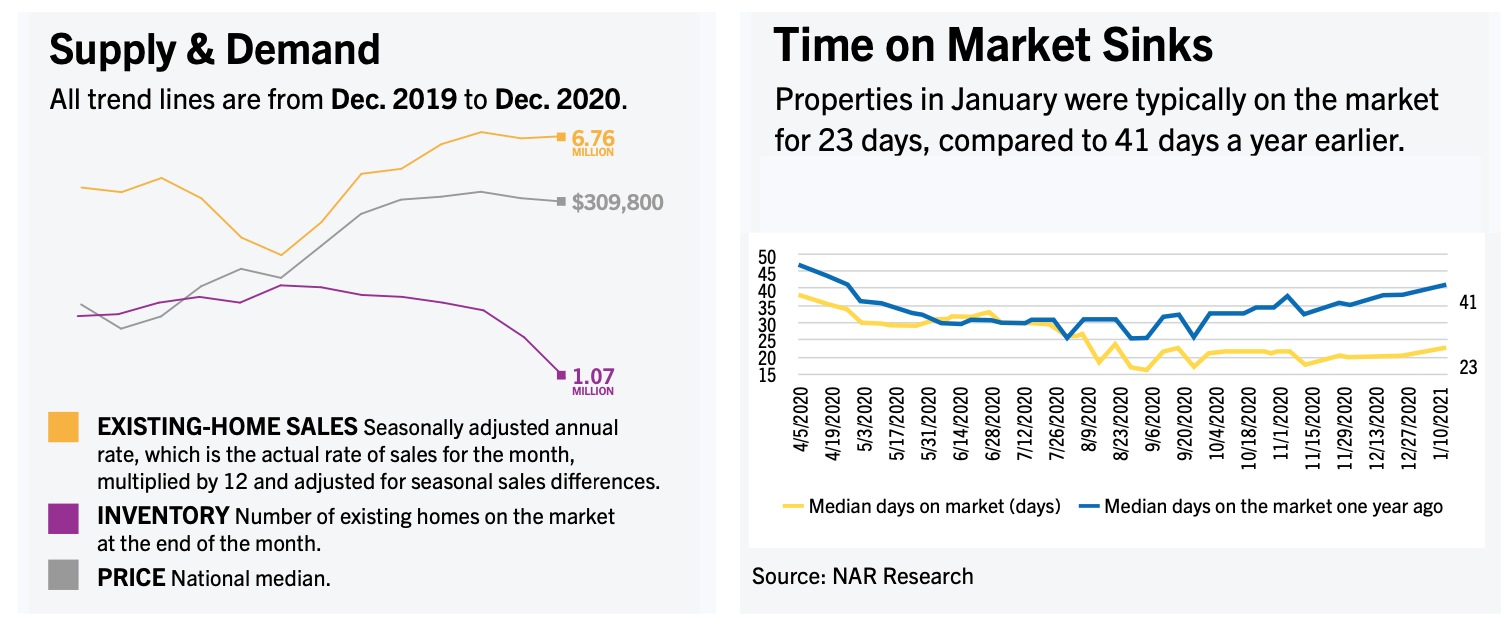
The 2020 pandemic-induced recession was unique in terms of the sudden and massive slashing of jobs. It was also the first recession during which overall income grew. No doubt there are families struggling paycheck to paycheck, but due to the massive stimulus packages—including the initial deposit of $1,200 and enhanced unemployment benefits—the financial condition of many families was better in a recession than before the pandemic.
Total income for the country in late 2020 was 4% higher than a year earlier. This was the figure reported just before the second stimulus checks of $600 per person went out in late December. It also does not include wealth accumulation from the record-high stock market or rising home prices. Also not reflected in the totals are the proceeds from mortgage refinances last year or the relief expected from a new stimulus. Still consumers remain cautious, as spending opportunities have been restricted by COVID-19. For the year, consumer spending fell by 2%. And the savings rate consequently rose to twice the pre-pandemic levels.
The situation translates into the potential for a great unleashing of spending in 2021. The positive impact will be increasingly felt as jobs come around. The full effect will be evident once herd immunity is established with the vaccine, likely in autumn. That is to say, 2021 is a growth year that will take us out of the recession.
The housing market continues to shine brightly. The main frustration is for buyers who find themselves outbid during multiple offer situations. More inventory is needed to give buyers more options and lessen the heat.
It’s encouraging to see that builders are ramping up production of homes with backyards, which are now at their highest level in 13 years. Activity has been particularly robust in Southern states where land is more plentiful and building regulations are less onerous.
Moreover, with the wider availability of COVID-19 vaccines, homeowners, especially older Americans, who have been more hesitant about strangers visiting their homes, now may be more ready to list. Many seniors own their homes outright and have sizable housing equity for their next home purchase. They may even need to buy a larger place to accommodate more family visitors. After all, in the new economy, remote-work flexibility may mean more days working from grandma’s house.
Housing Inventory Hits Record Low
Inventory at the end of December totaled 1.07 million units, down 16.4% from November and down 23% from one year before (1.39 million). Unsold inventory sat at an all-time low of 1.9-month supply.


No comments:
Post a Comment